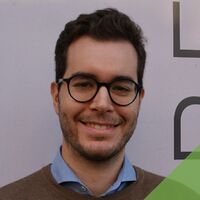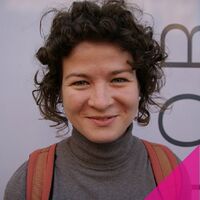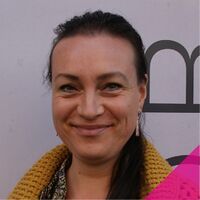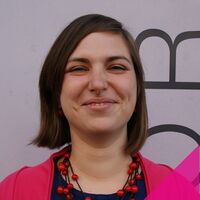Project team LED2LEAD: Difference between revisions
No edit summary |
No edit summary |
||
| Line 4: | Line 4: | ||
<gallery caption=" " widths="200px" heights="200px" perrow="4"> | <gallery caption=" " widths="200px" heights="200px" perrow="4"> | ||
File:ERNESTO.JPG|'''Prof. Ernesto Antonini, Project Coordinator:''' Full Professor of Technology for Architecture at University of Bologna, Department of Artchitecture, since 2016 Graduated in Architecture at IUAV, Venice (1984), PhD in Technologies for Architecture (Rome "La Sapienza" University, 1991), Head of R&D Dept. of Qua.S.CO., Bologna (Italy) 1993-2001. Appointed as Professor of Building Technologies and Building Process Management at IUAV School of Architecture, Venice (Italy) from 1998 to 2001. Associate Professor of Technology for Architecture at Bologna University, Dept. of Architecture, since 2005 until December 2015. As a researcher and then as a senior scientist he participated in several research projects funded by both National and European Programs, mainly focused on innovation in building techniques, materials and components as well as on new tools and equipment for the building process and, lately, on recycling of construction & demolition waste and sustainable architecture. He is chartered Expert Evaluator of the Italian Ministry for University and Research, the Italian Ministry for Economic Development as well as for the Regional Government of Toscana, Marche and Veneto. '''PROJECT STATEMENT''' "The LED2LEAP project is an opportunity to re-found landscape, turning it into a tool and a result of a more democratic, participatory and sustainable society. This kind of landscape requires a new kind of designer that we hope to help train with this project. Many times we celebrate our historical Italian or even European landscape to which we are certainly fond of, which are part of our roots. However, these landscapes are often and for the most part the result of authoritarian and oligarchic governments of the past, images of top-down politics and processes. With the LED2LEAP project, we are not only at the foundation of a new designer but equally of a new aesthetic of the landscape, an image of participatory, community, sharing and democratic processes." | File:ERNESTO.JPG|'''Prof. Ernesto Antonini, Project Coordinator:''' Full Professor of Technology for Architecture at University of Bologna, Department of Artchitecture, since 2016 Graduated in Architecture at IUAV, Venice (1984), PhD in Technologies for Architecture (Rome "La Sapienza" University, 1991), Head of R&D Dept. of Qua.S.CO., Bologna (Italy) 1993-2001. Appointed as Professor of Building Technologies and Building Process Management at IUAV School of Architecture, Venice (Italy) from 1998 to 2001. Associate Professor of Technology for Architecture at Bologna University, Dept. of Architecture, since 2005 until December 2015. As a researcher and then as a senior scientist he participated in several research projects funded by both National and European Programs, mainly focused on innovation in building techniques, materials and components as well as on new tools and equipment for the building process and, lately, on recycling of construction & demolition waste and sustainable architecture. He is chartered Expert Evaluator of the Italian Ministry for University and Research, the Italian Ministry for Economic Development as well as for the Regional Government of Toscana, Marche and Veneto. '''PROJECT STATEMENT''' "The LED2LEAP project is an opportunity to re-found landscape, turning it into a tool and a result of a more democratic, participatory and sustainable society. This kind of landscape requires a new kind of designer that we hope to help train with this project. Many times we celebrate our historical Italian or even European landscape to which we are certainly fond of, which are part of our roots. However, these landscapes are often and for the most part the result of authoritarian and oligarchic governments of the past, images of top-down politics and processes. With the LED2LEAP project, we are not only at the foundation of a new designer but equally of a new aesthetic of the landscape, an image of participatory, community, sharing and democratic processes." | ||
File:LUIGI.JPG|'''Prof. Luigi Bartolomei, Project Coordinator:''' | File:LUIGI.JPG|'''Prof. Luigi Bartolomei, Project Coordinator:''' Luigi Bartolomei, Architectural Engineer, obtained his PhD in Design and Architectural Composition at the University of Bologna with a thesis regarding the Phenomenology of Sacred Space. With this body of reserarch he promoted an analysis of archetypal figures in relation to the contemporary landscape and church architecture. He has worked at the School of Engineering and Architecture of the University of Bologna since 2007 among various roles. Luigi Bartolomei began as a tutor in History of Architecture (AA.2007/08 and 08/09) and later as a contract professor teaching Design and Architectural Composition (AA. 2009/10) and Landscape and Infrastructure Design (AA. 2010/11, 2011/12). The later course resulted in superior work between him and his students and was selected among the best projects regarding infrastructures in Italy by UrbanPromo. He is responsible for the Agreement between the Department of Architecture and FTER-Theological Faculty of Emilia-Romagna and subsequent courses that have derived from this collaborative partnership. He is a collaborator of the “The Journal of Architecture” [Il Giornale dell’Architettura] since 2008, where he has found a place for his architectural critic to be fully expressed. More specifically, Bartolomei was the editor of an investigative report regarding the city of Bologna (January 2012), and on the architecture of churches in the 50th anniversary of the Second Vatican Council (December 2012). In 2009 he won, in collaboration with Prof. Giorgio Praderio, a research project PRIN – Research of Relevant National Interest on the preservation and valorization of the landscape in small towns. Bartolomei is also actively involved with the Commission for Sacred Art and Architecture of Bologna Diocese, since 2008. He is currently responsible for the Project of Census of all Catholic Churches in the territory of Bologna’s Archdiocese (which involves more than 690 buildings). Since 2014 he is the director of “IN_BO, Ricerche e progetti per il territorio, la città e l’architettura”, (IN_BO, Researches and projects on territory, towns and architecture), an open-access and peer-reviewed scientific journal of the Department of Architecture at the University of Bologna. '''PROJECT STATEMENT'''. | ||
File:ANDREA.JPG|'''Andrea Conti, Project Coordinator:''' Andrea Conti is a PhD candidate of the department of Urban and Rural Development at the Swedish University of Agricultural Sciences. His research interests draw from the field of design theory, addressing design education and design processes as a way to create knowledge. Andrea studied Engineering of Building and Urban System at the University of Bologna. He received his Master’s Degree after an exchange study program at the University of Oregon, where he studied cycling mobility systems at the department of Landscape Architecture. Since his graduation in 2014, he has collaborated with design studios and municipalities in Italy, working as freelancer in urban mobility design projects. From 2014 to 2016, he collaborated as a tutor in design studio courses at the School of Engineering in Ravenna of the University of Bologna. Since 2018, he is editor of the journal IN_BO – Research and projects on territories, cities and architectures. '''PROJECT STATEMENT''' "Working with LED2LEAP brings new perspectives in the ways design is taught, and carried out, today. I believe that LED2LEAP offers opportunities for improving the education of both future practitioners and communities, assuring a radical change in the current design curricula." | File:ANDREA.JPG|'''Andrea Conti, Project Coordinator:''' Andrea Conti is a PhD candidate of the department of Urban and Rural Development at the Swedish University of Agricultural Sciences. His research interests draw from the field of design theory, addressing design education and design processes as a way to create knowledge. Andrea studied Engineering of Building and Urban System at the University of Bologna. He received his Master’s Degree after an exchange study program at the University of Oregon, where he studied cycling mobility systems at the department of Landscape Architecture. Since his graduation in 2014, he has collaborated with design studios and municipalities in Italy, working as freelancer in urban mobility design projects. From 2014 to 2016, he collaborated as a tutor in design studio courses at the School of Engineering in Ravenna of the University of Bologna. Since 2018, he is editor of the journal IN_BO – Research and projects on territories, cities and architectures. '''PROJECT STATEMENT''' "Working with LED2LEAP brings new perspectives in the ways design is taught, and carried out, today. I believe that LED2LEAP offers opportunities for improving the education of both future practitioners and communities, assuring a radical change in the current design curricula." | ||
File:JUAN.JPG|'''Juan Crous, Project Coordinator:''' Text '''PROJECT STATEMENT'''. | File:JUAN.JPG|'''Juan Crous, Project Coordinator:''' Text '''PROJECT STATEMENT'''. | ||
| Line 12: | Line 12: | ||
File:ESTER.JPG|'''Eszter Jakis, Project Coordinator:''' PhD student in landscape architecture. Her research topic is about the role of school grounds in environmental education. '''PROJECT STATEMENT''' "I believe that promoting landscape democracy can help society to understand better their environments as well as to take their future in their hands. Being part of this makes me really enthusiastic!" | File:ESTER.JPG|'''Eszter Jakis, Project Coordinator:''' PhD student in landscape architecture. Her research topic is about the role of school grounds in environmental education. '''PROJECT STATEMENT''' "I believe that promoting landscape democracy can help society to understand better their environments as well as to take their future in their hands. Being part of this makes me really enthusiastic!" | ||
File:THOMAS.JPG|'''Prof. Thomas Oles, Project Coordinator:''' Text '''PROJECT STATEMENT'''. | File:THOMAS.JPG|'''Prof. Thomas Oles, Project Coordinator:''' Text '''PROJECT STATEMENT'''. | ||
File:NICK.JPG|'''Nicolas Reibel, Project Tutor:''' | File:NICK.JPG|'''Nicolas Reibel, Project Tutor:''' Nicolas Reibel, is a multi-disciplinary visual artist working in public space and community engagement. He considers the social role of art the catalyst for action and agency, making communities more accessible. LED project experiences over the past few years, as a student in 2016 and supplemental project support during the 2017 intensive, compliment how he views public space - seeing the space between spaces as a spiritual and experiment place, as well as, an open opportunity. HIs artistic focus continues to further the aims of promoting access, stewardship and identity across a spectrum of stakeholders.. | ||
He carries a double degree in Sculpture and Mixed-Media Installation from Western Washington University in the USA, with a broad background in art history. He has been exhibiting work for international audiences since 2000 while concurrently leading a number of public installations. Recently, he has stepped into the field of art mediation by facilitating discussions for Documenta 14 in Kassel and leading mediation workshops for Adidas, throughout Germany. '''PROJECT STATEMENT'''. | |||
File:ANITA.JPG|'''Anita Reith, Project Coordinator:''' Anita Reith is a freelancer landscape architect and a PhD student at Szent Istvan University of Budapest. She met the idea of participatory planning first at Kristin Faurest’s lecture. Since that she started to explore more and more of the topic. With an international scholarship she had the chance to work in Canada for an architectural firm who is specialized in participatory planning and community-oriented design. Her Master thesis was based on the Canadian experience – a showcase of the Canadian process application in Hungary. Anita have received several recognitions – from the Hungarian Architectural Association, the Hungarian Urbanist Association and in 2016 Anita won the competition for the Junior Landscape Architect of the Year. Her doctoral research is also related to landscape democracy and the LED2LEAP project. '''PROJECT STATEMENT''' Her PhD research topic is public spaces in lovable and livable cities and how the participation process can change the stories that we have with our environment. The LED2LEAP Hungarian Living Lab will be more focused on the kids perception which is very important as they are the next generation citizens and users of our public spaces. | File:ANITA.JPG|'''Anita Reith, Project Coordinator:''' Anita Reith is a freelancer landscape architect and a PhD student at Szent Istvan University of Budapest. She met the idea of participatory planning first at Kristin Faurest’s lecture. Since that she started to explore more and more of the topic. With an international scholarship she had the chance to work in Canada for an architectural firm who is specialized in participatory planning and community-oriented design. Her Master thesis was based on the Canadian experience – a showcase of the Canadian process application in Hungary. Anita have received several recognitions – from the Hungarian Architectural Association, the Hungarian Urbanist Association and in 2016 Anita won the competition for the Junior Landscape Architect of the Year. Her doctoral research is also related to landscape democracy and the LED2LEAP project. '''PROJECT STATEMENT''' Her PhD research topic is public spaces in lovable and livable cities and how the participation process can change the stories that we have with our environment. The LED2LEAP Hungarian Living Lab will be more focused on the kids perception which is very important as they are the next generation citizens and users of our public spaces. | ||
File:DENI.JPG|'''Prof. Deni Ruggeri, Project Coordinator:''' Dr. Deni Ruggeri is Associate Professor and Landscape Architecture Section Leader in the Institute for Landscape Architecture and Spatial Planning at the Norwegian University of Life Sciences (NMBU), Norway. His research focuses on social dimensions of landscape and urban design. He is particularly interested in the influence landscapes have on people’s place identity and attachment, and in developing new tools and processes for engaging communities in the design of places that are conducive to sustainable lifestyles, physical and mental well-being, ecological health, economic viability, identity, delight, and biophilia. Deni Ruggeri’s education includes a Ph.D. in Landscape Architecture from the University of California, Berkeley and graduate degrees in both Landscape Architecture and City Planning from Cornell University. He has practiced landscape architecture in California and Colorado, and has international experience in leading community design and visioning processes. Before joining NMBU, Deni has taught in the USA at the University of Oregon and Cornell University. '''PROJECT STATEMENT''' | File:DENI.JPG|'''Prof. Deni Ruggeri, Project Coordinator:''' Dr. Deni Ruggeri is Associate Professor and Landscape Architecture Section Leader in the Institute for Landscape Architecture and Spatial Planning at the Norwegian University of Life Sciences (NMBU), Norway. His research focuses on social dimensions of landscape and urban design. He is particularly interested in the influence landscapes have on people’s place identity and attachment, and in developing new tools and processes for engaging communities in the design of places that are conducive to sustainable lifestyles, physical and mental well-being, ecological health, economic viability, identity, delight, and biophilia. Deni Ruggeri’s education includes a Ph.D. in Landscape Architecture from the University of California, Berkeley and graduate degrees in both Landscape Architecture and City Planning from Cornell University. He has practiced landscape architecture in California and Colorado, and has international experience in leading community design and visioning processes. Before joining NMBU, Deni has taught in the USA at the University of Oregon and Cornell University. '''PROJECT STATEMENT''' | ||
Revision as of 09:49, 5 March 2020
Prof. Ernesto Antonini, Project Coordinator: Full Professor of Technology for Architecture at University of Bologna, Department of Artchitecture, since 2016 Graduated in Architecture at IUAV, Venice (1984), PhD in Technologies for Architecture (Rome "La Sapienza" University, 1991), Head of R&D Dept. of Qua.S.CO., Bologna (Italy) 1993-2001. Appointed as Professor of Building Technologies and Building Process Management at IUAV School of Architecture, Venice (Italy) from 1998 to 2001. Associate Professor of Technology for Architecture at Bologna University, Dept. of Architecture, since 2005 until December 2015. As a researcher and then as a senior scientist he participated in several research projects funded by both National and European Programs, mainly focused on innovation in building techniques, materials and components as well as on new tools and equipment for the building process and, lately, on recycling of construction & demolition waste and sustainable architecture. He is chartered Expert Evaluator of the Italian Ministry for University and Research, the Italian Ministry for Economic Development as well as for the Regional Government of Toscana, Marche and Veneto. PROJECT STATEMENT "The LED2LEAP project is an opportunity to re-found landscape, turning it into a tool and a result of a more democratic, participatory and sustainable society. This kind of landscape requires a new kind of designer that we hope to help train with this project. Many times we celebrate our historical Italian or even European landscape to which we are certainly fond of, which are part of our roots. However, these landscapes are often and for the most part the result of authoritarian and oligarchic governments of the past, images of top-down politics and processes. With the LED2LEAP project, we are not only at the foundation of a new designer but equally of a new aesthetic of the landscape, an image of participatory, community, sharing and democratic processes."
Prof. Luigi Bartolomei, Project Coordinator: Luigi Bartolomei, Architectural Engineer, obtained his PhD in Design and Architectural Composition at the University of Bologna with a thesis regarding the Phenomenology of Sacred Space. With this body of reserarch he promoted an analysis of archetypal figures in relation to the contemporary landscape and church architecture. He has worked at the School of Engineering and Architecture of the University of Bologna since 2007 among various roles. Luigi Bartolomei began as a tutor in History of Architecture (AA.2007/08 and 08/09) and later as a contract professor teaching Design and Architectural Composition (AA. 2009/10) and Landscape and Infrastructure Design (AA. 2010/11, 2011/12). The later course resulted in superior work between him and his students and was selected among the best projects regarding infrastructures in Italy by UrbanPromo. He is responsible for the Agreement between the Department of Architecture and FTER-Theological Faculty of Emilia-Romagna and subsequent courses that have derived from this collaborative partnership. He is a collaborator of the “The Journal of Architecture” [Il Giornale dell’Architettura] since 2008, where he has found a place for his architectural critic to be fully expressed. More specifically, Bartolomei was the editor of an investigative report regarding the city of Bologna (January 2012), and on the architecture of churches in the 50th anniversary of the Second Vatican Council (December 2012). In 2009 he won, in collaboration with Prof. Giorgio Praderio, a research project PRIN – Research of Relevant National Interest on the preservation and valorization of the landscape in small towns. Bartolomei is also actively involved with the Commission for Sacred Art and Architecture of Bologna Diocese, since 2008. He is currently responsible for the Project of Census of all Catholic Churches in the territory of Bologna’s Archdiocese (which involves more than 690 buildings). Since 2014 he is the director of “IN_BO, Ricerche e progetti per il territorio, la città e l’architettura”, (IN_BO, Researches and projects on territory, towns and architecture), an open-access and peer-reviewed scientific journal of the Department of Architecture at the University of Bologna. PROJECT STATEMENT.
Andrea Conti, Project Coordinator: Andrea Conti is a PhD candidate of the department of Urban and Rural Development at the Swedish University of Agricultural Sciences. His research interests draw from the field of design theory, addressing design education and design processes as a way to create knowledge. Andrea studied Engineering of Building and Urban System at the University of Bologna. He received his Master’s Degree after an exchange study program at the University of Oregon, where he studied cycling mobility systems at the department of Landscape Architecture. Since his graduation in 2014, he has collaborated with design studios and municipalities in Italy, working as freelancer in urban mobility design projects. From 2014 to 2016, he collaborated as a tutor in design studio courses at the School of Engineering in Ravenna of the University of Bologna. Since 2018, he is editor of the journal IN_BO – Research and projects on territories, cities and architectures. PROJECT STATEMENT "Working with LED2LEAP brings new perspectives in the ways design is taught, and carried out, today. I believe that LED2LEAP offers opportunities for improving the education of both future practitioners and communities, assuring a radical change in the current design curricula."
Ilka Demeny, Project Coordinator: Ilka Demény is an MSc architect, practicing in Budapest, Hungary. Working mainly on projects addressing the public realm, her main interest lies in the ways architecture accommodates public life, the complex relation between spatial, social and historical aspects of urban living. With a background in art history and a regular involvement with the educational practice of Hello Wood aiming at ‘learning by doing’, her participation in the LED2LEAP project on behalf of the NGO kultúrAktív is a step forward on the road towards a socially engaged architectural practice. PROJECT STATEMENT "The three years of the LED2LEAP project provide the possibility of exploring the challenges and specificities of community building and participatory design processes in an environment which has a history quite poor in civic engagement."
Dr. Albert Fekete, Project Coordinator: Graduated Landscape Architect, Dean of the Faculty of Landscape Architecture and Urbanism Budapest, Szent István University. Researcher, teacher, guest lecturer in several european universities and active landscape designer with international design experiences, having since 2000 his own office (Lépték Terv Landscape Office) in Budapest and since 2007 the AB PLAN Design Office in Romania. Having more than 60 realized open space design projects related mostly to heritage site preservations in Hungary, Romania, Germany, Holland and Spain as well. Awarded among others in 14 design competitions and winner of several national and international professional recognitions, for instance the „Landscape Architect of the Year” prize in Hungary in 2012 and 2017, and the Europa Nostra Award in Research in 2014. PROJECT STATEMENT "The LED2Leap contributes to my professional development giving the possibility to work with students in an international context, dealing with issues in a specific topic of Landscape Architecture, enhancing the importance and adapting of global issues to local needs and expectations through community supported design projects."
Dr. Ellen Fetzer, Project Coordinator: Ellen Fetzer holds a diploma and a doctoral degree in landscape planning from Kassel University, Germany. At Nürtingen-Geislingen University she is primarily coordinating the international masters in landscape architecture (IMLA, www.imla-campus.eu). Her second focus is on computer supported collaborative learning. Ellen is currently president of ECLAS (www.eclas.org), the European Council of Landscape Architecture Schools. PROJECT STATEMENT "I hope that the LED2LEAP living labs will promote sustainable landscape development here in Nürtingen at the neighbourhood level. The labs should bring us as academics closer to our local community. I hope that this will develop into a mutually beneficial and balanced partnership."
Eszter Jakis, Project Coordinator: PhD student in landscape architecture. Her research topic is about the role of school grounds in environmental education. PROJECT STATEMENT "I believe that promoting landscape democracy can help society to understand better their environments as well as to take their future in their hands. Being part of this makes me really enthusiastic!"
Nicolas Reibel, Project Tutor: Nicolas Reibel, is a multi-disciplinary visual artist working in public space and community engagement. He considers the social role of art the catalyst for action and agency, making communities more accessible. LED project experiences over the past few years, as a student in 2016 and supplemental project support during the 2017 intensive, compliment how he views public space - seeing the space between spaces as a spiritual and experiment place, as well as, an open opportunity. HIs artistic focus continues to further the aims of promoting access, stewardship and identity across a spectrum of stakeholders..
Anita Reith, Project Coordinator: Anita Reith is a freelancer landscape architect and a PhD student at Szent Istvan University of Budapest. She met the idea of participatory planning first at Kristin Faurest’s lecture. Since that she started to explore more and more of the topic. With an international scholarship she had the chance to work in Canada for an architectural firm who is specialized in participatory planning and community-oriented design. Her Master thesis was based on the Canadian experience – a showcase of the Canadian process application in Hungary. Anita have received several recognitions – from the Hungarian Architectural Association, the Hungarian Urbanist Association and in 2016 Anita won the competition for the Junior Landscape Architect of the Year. Her doctoral research is also related to landscape democracy and the LED2LEAP project. PROJECT STATEMENT Her PhD research topic is public spaces in lovable and livable cities and how the participation process can change the stories that we have with our environment. The LED2LEAP Hungarian Living Lab will be more focused on the kids perception which is very important as they are the next generation citizens and users of our public spaces.
Prof. Deni Ruggeri, Project Coordinator: Dr. Deni Ruggeri is Associate Professor and Landscape Architecture Section Leader in the Institute for Landscape Architecture and Spatial Planning at the Norwegian University of Life Sciences (NMBU), Norway. His research focuses on social dimensions of landscape and urban design. He is particularly interested in the influence landscapes have on people’s place identity and attachment, and in developing new tools and processes for engaging communities in the design of places that are conducive to sustainable lifestyles, physical and mental well-being, ecological health, economic viability, identity, delight, and biophilia. Deni Ruggeri’s education includes a Ph.D. in Landscape Architecture from the University of California, Berkeley and graduate degrees in both Landscape Architecture and City Planning from Cornell University. He has practiced landscape architecture in California and Colorado, and has international experience in leading community design and visioning processes. Before joining NMBU, Deni has taught in the USA at the University of Oregon and Cornell University. PROJECT STATEMENT
Anna Szilagi-Nagy, Project Coordinator: Anna Szilágyi-Nagy is an MSc landscape architect with a professional interest is to promote playful and creative practices that engage communities with urban planning. She is passionate about youth empowerment and as vice-president of the kultúrAktív Egyesület, a Hungarian NGO that fosters built environment education for children, she coordinates projects that encourage young people to actively shape their environment. She proudly coordinates the development process of the live board game ‘Urbanity’ and urban activism game ‘Playhellocity’. As a PhD student at the University of Tubingen, she researches about the transformation of landscape democracy practices through games. As a board member of the LE:NOTRE Institute, she is interested in linking landscape democracy to the education, research and practice of landscape architecture on local and international level. PROJECT STATEMENT “text.”
Jeroen de Vries, Project Coordinator: Jeroen de Vries (1953) is a landscape architect with a mission to foster the professional and academic quality of the discipline. Combines vision and innovation with management and sustainable support of organisations. In groups and projects acting as the driving force: structuring, organising discussion, guiding decision making, supporting his colleagues, and editing and implementing the outcomes. He drew up many strategic plans for green areas for cities in collaboration with local stakeholders. Graduated as a landscape architect of Wageningen University with a specialisation in landscape design and ecology. Worked at the DG Group and a teacher and researcher at HVHL University of Applied Science. Jeroen supports landscape architecture on a national and European level. He was one of the main authors of the ECLAS Guidelines for Landscape architecture (2010). In 2017 and 2018 he worked on the Erasmus+ Strategic Partnership EULAND21 project to develop elaborate and update the ECLAS Guidance into a set of learning lines for landscape architecture education. Currently he is on the advisory board of the DG Group and Director Researcher of the LE:NOTRE Institute. PROJECT STATEMENT "The LED2LEAP project is essential for empowerment of local stakeholders to improve and adjust their environment to their own needs. I am very motivated to support that higher education and NGO’s join forces and develop tools for co-creation and co-production of landscapes."

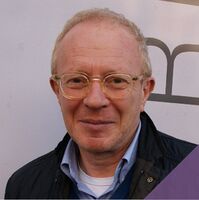
![Prof. Luigi Bartolomei, Project Coordinator: Luigi Bartolomei, Architectural Engineer, obtained his PhD in Design and Architectural Composition at the University of Bologna with a thesis regarding the Phenomenology of Sacred Space. With this body of reserarch he promoted an analysis of archetypal figures in relation to the contemporary landscape and church architecture. He has worked at the School of Engineering and Architecture of the University of Bologna since 2007 among various roles. Luigi Bartolomei began as a tutor in History of Architecture (AA.2007/08 and 08/09) and later as a contract professor teaching Design and Architectural Composition (AA. 2009/10) and Landscape and Infrastructure Design (AA. 2010/11, 2011/12). The later course resulted in superior work between him and his students and was selected among the best projects regarding infrastructures in Italy by UrbanPromo. He is responsible for the Agreement between the Department of Architecture and FTER-Theological Faculty of Emilia-Romagna and subsequent courses that have derived from this collaborative partnership. He is a collaborator of the “The Journal of Architecture” [Il Giornale dell’Architettura] since 2008, where he has found a place for his architectural critic to be fully expressed. More specifically, Bartolomei was the editor of an investigative report regarding the city of Bologna (January 2012), and on the architecture of churches in the 50th anniversary of the Second Vatican Council (December 2012). In 2009 he won, in collaboration with Prof. Giorgio Praderio, a research project PRIN – Research of Relevant National Interest on the preservation and valorization of the landscape in small towns. Bartolomei is also actively involved with the Commission for Sacred Art and Architecture of Bologna Diocese, since 2008. He is currently responsible for the Project of Census of all Catholic Churches in the territory of Bologna’s Archdiocese (which involves more than 690 buildings). Since 2014 he is the director of “IN_BO, Ricerche e progetti per il territorio, la città e l’architettura”, (IN_BO, Researches and projects on territory, towns and architecture), an open-access and peer-reviewed scientific journal of the Department of Architecture at the University of Bologna. PROJECT STATEMENT.](/images/thumb/8/87/LUIGI.JPG/200px-LUIGI.JPG)
